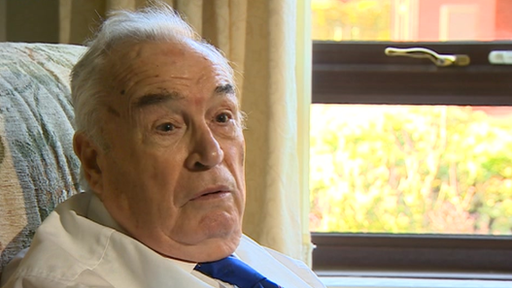Family appeal to find 'third Birmingham pub bomb'
- Published
Maxine Hambleton's sister Julie said the third bomb could hold vital DNA traces
The family of a woman killed in the Birmingham pub bombings has urged police to find an alleged third device which could reveal who was responsible.
Retired Det Insp Eric Francis said it was planted in the city on the night of the 1974 attacks but never detonated.
The family of Maxine Hambleton, one of 21 killed in the two blasts, said West Midlands Police had told them they once had the device but had since lost it.
The force said it was too early to talk about individual items of evidence.
"We urge the police to find this fundamental piece of evidence," said Maxine's sister Julie Hambleton.
"It had a controlled detonation which means it would be pretty much intact.
"It would still have DNA still on it."
Mr Francis claims he was called to investigate a third device left in a doorway on Hagley Road in Edgbaston on 21 November 1974 - the night of the bombings.
He said it proved the Birmingham Six - the men jailed and later acquitted over the attacks - were not responsible.

Eric Francis believes an active IRA cell in Ladywood was responsible for the bombings
The device was fitted with a one-hour timer, set to go off at 23:00 GMT, but when the men were arrested they were too far away from the scene to have planted it, he said.
Mr Francis told the Birmingham Mail, external a recent TV documentary, in which relatives of a victim met one of the Birmingham Six, prompted him to reveal the information about the third bomb.
He said at the time of the attacks senior officers failed to investigate the third device properly and only focused on the Birmingham Six.
"I think they genuinely thought these were the men and 'we've got them'," said Mr Francis.
"They thought they had cracked it."
Mr Francis believes an active IRA cell in the Ladywood area of the city was, in fact, responsible for the attacks.
"I don't think mentally they [the Birmingham Six] were capable of carrying out a bombing," he said.
Two bombs exploded at two pubs - The Mulberry Bush and the Tavern in the Town - killing 21 people and injuring 182.
Hugh Callaghan, Paddy Hill, Gerard Hunter, Richard McIlkenny, William Power and John Walker were jailed in 1975 but their convictions were quashed by the Court of Appeal in 1991.
No-one has since been charged over the bombings.
Maxine's family have been campaigning for the case to be re-opened.
West Midlands Police is in the process of revisiting historic evidence and has said it will consider reopening the case if a significant line of inquiry emerges.
A spokesman said: "We are currently in the process of collating, assessing and storing to modern day standards documentation and exhibits relating to the Birmingham pub bombings. To date this amounts to over 10,000 items.
"We will not be giving details regarding individual items until this work is complete - which we estimate to be in the spring of next year."
- Published16 November 2013
- Published21 November 2012
- Published15 February 2012